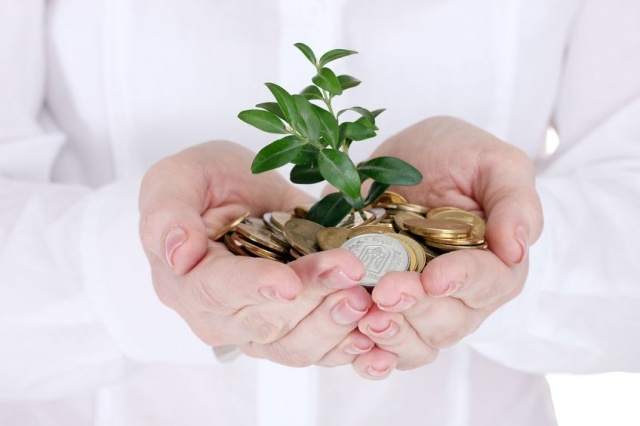Who is responsible for a relationship?
More and more often I get questions on my website which are left hanging in the air:
• Why is it that only a woman should be chaste?
• Why is it that only a woman should save a relationship?
• Why is it that men don’t need to do anything, they just show up when it’s all done for them?
• Why is it that a woman has so many responsibilities, and you never write about man’s responsibilities?
• Why is it, in general, in all your articles, a woman is the cause of all troubles?
I can say once again that a woman can only share knowledge with other women, therefore I can only talk about women’s responsibilities.
Anyway, I will respond to these questions once, in this article. And I will not go back to these questions again. What do you think, who should be responsible for a relationship?
How the responsibility should be divided up?
Usually I hear the same answer. It should be divided 50/50.
This opinion is exactly what is causing arguments and disagreements in a family. Who did more in a relationship, and who did less? How do you evaluate a husband’s efforts in supporting a family and a wife’s efforts in keeping the household? How do you evaluate his deed of writing a text message and bringing flowers, and her offering to give him a foot massage in the evening?
Who sets the criteria and who should calculate the percentage? How do you evaluate each one of these actions? Do you evaluate it by its importance, by the amount of efforts, by time and emotions invested?
Or should it be done by the rule: “You do it for me, and I do it for you?” Or may be: “If I make a step towards you, be nice and make your step towards me as well?”
This approach is based upon guna of passion – the desire to enjoy another person. It’s based on the desire to only have positive emotions in a relationship. There is no true love and no true serving. There is no intention to have a genuinely happy family. And this balance would be reflected in everything – if you hurt me, I will hurt you more…
So my answer is this. You are responsible 100% for any relationship – for a relationship with a husband, kids, parents and friends. Any relationship is solely and entirely your responsibility.
You are a gardener who waters and fertilizes these relationships. And if there are weeds in your garden bed – it means, you didn’t weed on time. If there is no harvest, it means you didn’t plant anything, or forgot to water, or didn’t protect from cold weather.
Of course, it’s up to the Will of God. We do have certain climate and weather conditions – the input, which we cannot change. If you are having a farm in Siberia, most likely you cannot plant coconuts. And even if you plant them, you will realize that there will be no harvest. But, you can grow apples, for example, or tomatoes. You do need to put a lot of efforts in order to create favorable conditions for these plants.
But when we talk about a relationship, usually we don’t want to invest in it. We don’t want to consider the initial terms. We marry a handyman, hoping that he will become a general one day, or may be a businessman. We pick a momma’s boy and expect him to be a cavalier. But it is actually the same as growing coconuts in Siberia – we know the output in advance.
We don’t want to take care of kaleyard for a long time – we expect to have a good harvest right away. Why do we need to learn how to accept and to love? It’s better to demand respect and acceptance from your spouse. We feel lazy to do nice things for him. And we feel even lazier to pull away, when he doesn’t behave right, because for this we need to have patience and we need to get over our emotions. It’s much easier to yell and have a drama scene, or may be just to be upset.
We don’t want to accept our 100% responsibility because we cannot lie to ourselves later. We cannot blame anybody any longer and have to change ourselves. And this is very very hard. But for this we get a great gift- a true choice in creativity and a possibility to become selfless and loving. Then you don’t need to ask a question: “What do I get back?” Then you are not interested in: “Why doesn’t he want to change?” or “When will I see the results?”
You are responsible for your chastity, for your mood, for fulfilling your responsibilities, for how you treat yourself, for how you let others treat you. What will you get from this?
• You will stop to expect anything from others and will start to change yourself
• You will have right and possibility to have a relationship that you want (once again, for this you need to change)
• In the guna of goodness, you are destined to have happiness. This is the nature of goodness – it doesn’t have mercy for anybody. Whatever you do, if you are in this guna, everything will turn out in the best possible way.
What will you pick? I will do this for you and you do this for me? Life in the guna of passion when people are together only when it’s beneficial for them? Or life in the guna of goodness, when we first work on building a relationship, but later on arrive to happiness?
Yes, it is much harder. Yes, it takes a lot of emotional efforts and working on yourself, working on your selfishness, first of all. Yes, it seems unfair – but again, this is the voice of your selfishness. Because everything in this world is fair. And we are not the ones to rule what’s fair and what’s not. The gift that is expecting you, not even at the end of your way, in the middle, is huge. And cannot be compared to anything else. In goodness we are destined to be happy.
Olga Valyaeva – valayaeva.com
translated by Olga
 Print
Print






